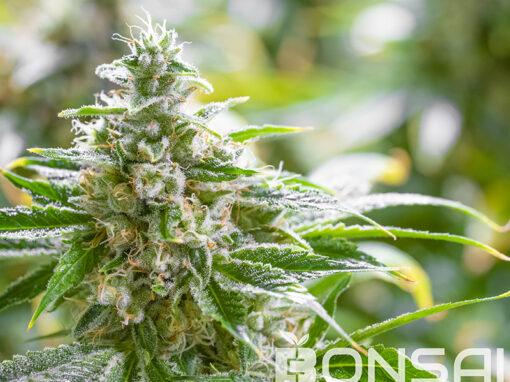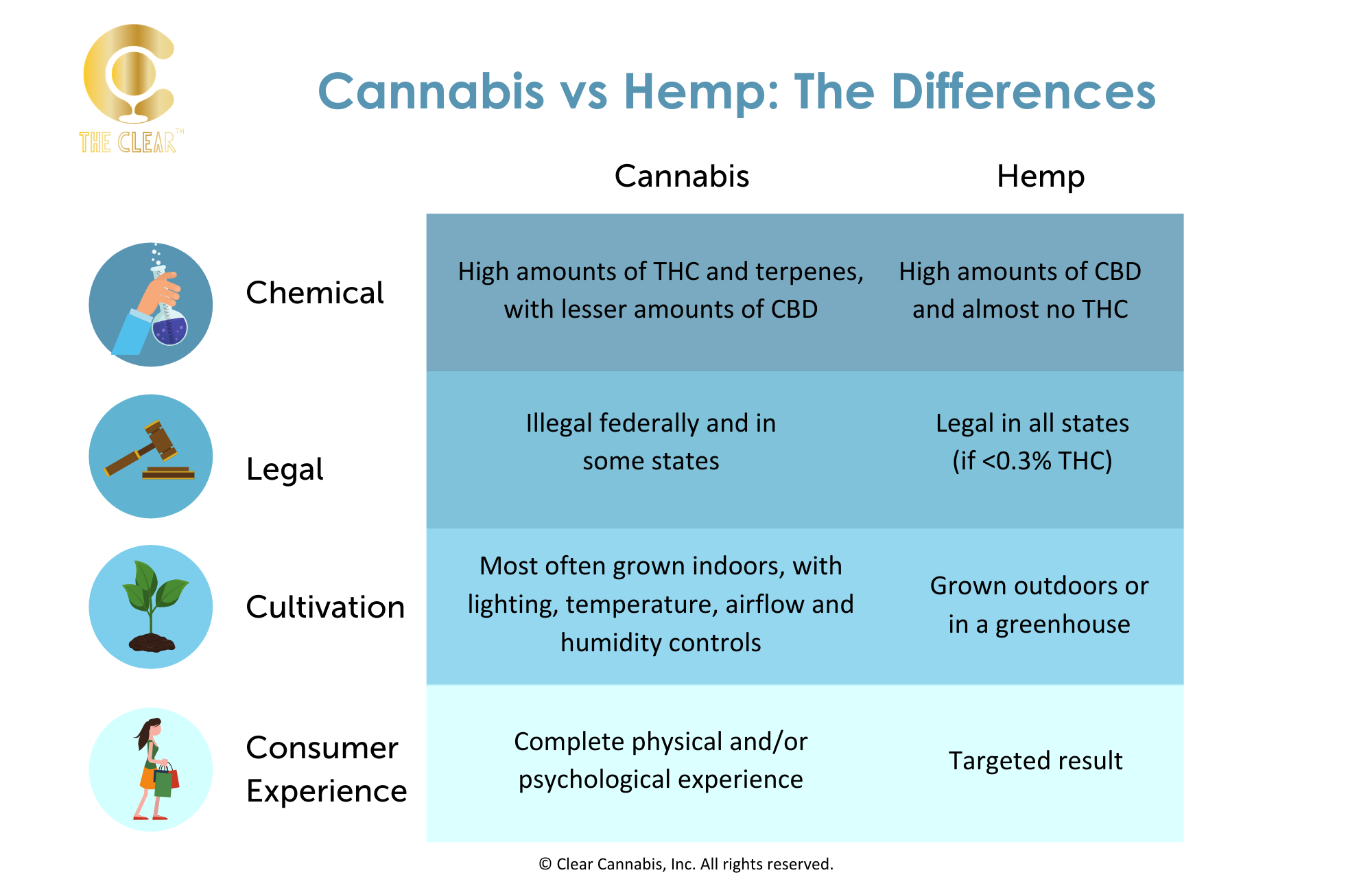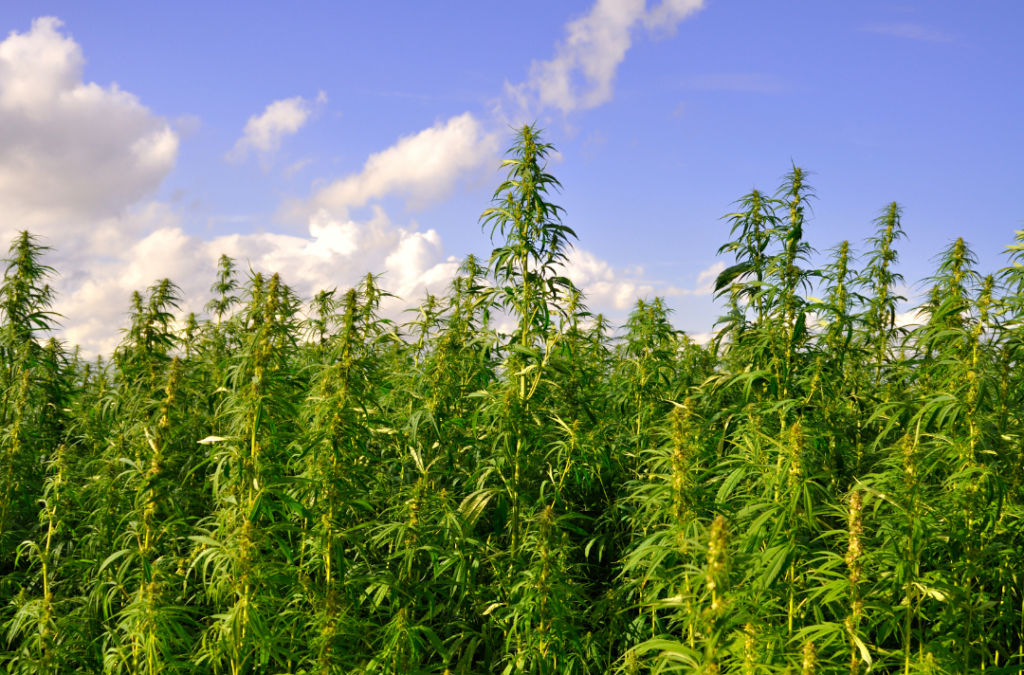You may be confused about the difference between cannabis and hemp, so you may not know which type of product to buy. Both cannabis and hemp originate from the same species of Cannabis Sativa, have seven-fingered leaves and can produce comparable products. You’ll need to go much deeper to find fundamental differences between the two plants. Let’s describe four of them.
1. Chemical Differences of Cannabis vs Hemp
First, there’s a chemical difference: Each plant is cultivated to focus on a different ratio of active compounds called cannabinoids.

-
- Cannabis growers are interested in flower with high amounts of THC and terpenes, along with a mix of other cannabinoids (including CBD). This broad spectrum of compounds works together, in a process known as the “entourage effect,” to produce the best results for the body’s endocannabinoid receptors. In most legal jurisdictions, cannabis plants with higher THC content are regulated and often used for recreational or medicinal purposes.
- Growers of hemp plants want flower with high amounts of CBD and almost no THC. (By the way, industrial uses of hemp include food additives from the seeds, hemp hearts, hemp oil, as well as paper and fiber processed from the stalk). Hemp often has less than 0.3% THC in the United States. This means that hemp does not have psychoactive effects and is not typically used for recreational purposes.
2. The Legal Differences of Hemp vs Cannabis
Second, there’s a legal difference: Federal laws treat cannabis completely differently from hemp.
-
- Regulated under the Controlled Substances Act, cannabis remains illegal to grow, in the eyes of the federal government and in some states, while many other states tightly control the cultivation process for medical and/or recreational consumers. That’s because cannabis contains THC, which is a Schedule I substance. Cannabis might contain as much as 30% THC by dry weight, with lesser amounts of CBD and other cannabinoids.
- As a result of the Hemp Farming Act of 2018, hemp is legal to grow in all states, as long as the plant doesn’t contain more than 0.3% THC by dry weight. There’s no limit to the amount of CBD that hemp can contain, although most plants have about 20-25%.

3. The Differences in Cultivation of Cannabis vs Hemp
Third, there’s a cultivation difference: The conditions needed to grow cannabis are different from those needed to grow hemp.
-
- Cannabis is often grown indoors, with just the right cycle of lighting, temperature, airflow and humidity controls to produce the optimum THC and CBD content in about three months. Because of their broad branch structure, each plant is kept a certain distance apart from each other so that one plant can’t interfere with another plant’s growth.
- Hemp is usually grown outdoors or in a greenhouse for industrial purposes, with much fewer environmental controls required because it’s a much hardier plant. Since hemp plants grow thinner and taller (15-20 feet high vs. 5-8 feet high for cannabis), they can grow closer together.

4. The Consumer Experience Differences with Cannabis vs Hemp
Finally, there’s a consumer experience difference: Cannabis and hemp products are developed to provide their own unique effects.
- Cannabis produces a wide variety of products, such as The Clear Brands products, rich with THC and/or CBD and other cannabinoids used for psychoactive purposes and designed to provide a complete physical and/or psychological experience. Cannabis is used for medical purposes to relieve serious conditions such as lack of appetite, glaucoma, pain, chemotherapy-induced nausea and PTSD, as well as for recreational purposes such as for socialization, relaxation or stress relief in some states.
- Most CBD oil on the market today is extracted from the hemp flower. A broad-spectrum hemp oil might contain other cannabinoids (except for THC), such as The Clear CBD products, while an isolate oil contains only CBD. When you consume CBD, regardless of delivery method— topicals like The Clear CBD salve, vaping, tinctures, edibles, etc.—you expect a targeted result for a certain condition, whether it’s relief from pain, anxiety, insomnia, or other conditions. You will not experience the psychoactive effects that THC would provide.
Now that you know the difference between the two plants, you’ll hopefully be able to make a more informed purchasing decision based on your needs. For example, when shopping for CBD oil, ask whether the product comes from hemp or from cannabis. With that information, you’ll know what effects you’ll experience.
Find The Clear products here. If you are a purchasing manager for a dispensary interested in carrying The Clear, contact us here. Are you a dispensary owner or larger-scale operator looking to bring The Clear to your state? Contact us here.

